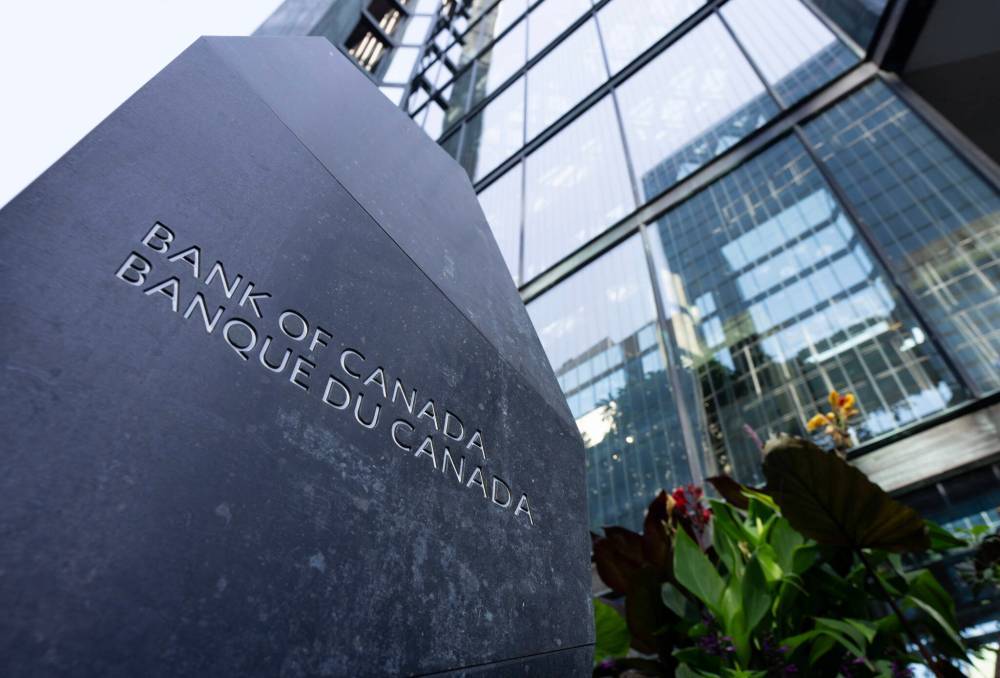Who us, worry?
Everyone is more concerned about a recession; here’s what you can do to prepare for the big R
Advertisement
Read this article for free:
or
Already have an account? Log in here »
To continue reading, please subscribe:
Monthly Digital Subscription
$1 per week for 24 weeks*
- Enjoy unlimited reading on winnipegfreepress.com
- Read the E-Edition, our digital replica newspaper
- Access News Break, our award-winning app
- Play interactive puzzles
*Billed as $4.00 plus GST every four weeks. After 24 weeks, price increases to the regular rate of $19.00 plus GST every four weeks. Offer available to new and qualified returning subscribers only. Cancel any time.
Monthly Digital Subscription
$4.75/week*
- Enjoy unlimited reading on winnipegfreepress.com
- Read the E-Edition, our digital replica newspaper
- Access News Break, our award-winning app
- Play interactive puzzles
*Billed as $19 plus GST every four weeks. Cancel any time.
To continue reading, please subscribe:
Add Winnipeg Free Press access to your Brandon Sun subscription for only
$1 for the first 4 weeks*
*$1 will be added to your next bill. After your 4 weeks access is complete your rate will increase by $0.00 a X percent off the regular rate.
Read unlimited articles for free today:
or
Already have an account? Log in here »
Hey there, time traveller!
This article was published 17/08/2024 (389 days ago), so information in it may no longer be current.
The Olympics may be over, but that hasn’t stopped central bankers from still trying to stick the landing.
The Bank of Canada and the U.S. Federal Reserve — among many other central banks globally — hiked interest rates to cut high inflation, while aiming not to cause a recession.
Many have referred to that feat as a ‘soft landing’ for the economy.

Mike Deal / Free Press files
Grant White is an investment advisor with Endeavour Wealth Management at iA Private Wealth in Winnipeg.
Just a few weeks ago, it seemed like central bankers would stick that soft landing.
That’s changed recently as more folks — especially increasingly skittish investors — worry central banks have stumbled, hiking interest rates too high for too long.
In turn, economic growth wouldn’t have just slowed; it might have actually turned negative.
“A few weeks ago if you saw a jobs report that showed a slowdown, it was a positive and the markets would have ripped upward because the likelihood of rate cuts was increasing,” says Grant White, investment advisor with Endeavour Wealth Management at iA Private Wealth in Winnipeg.
A little negative news would force the Fed to cut interest rates; a recession would be averted, and growth—especially for big tech stocks—would continue.
Now, even slightly negative economic news is an ill omen, White adds.
Yet no one knows if a recession is just around the corner. We often only know in hindsight because, technically, a recession is defined by two consecutive quarters—a half-year—of economic decline.
Even then, it’s not that clear cut.
“I don’t think any economist would say that just because we’ve had two straight quarters of negative economic growth that means we’re in a recession,” says James Orlando, director of economics at TD Bank.
“What’s more telling is when you start seeing widespread job losses, and we haven’t seen anything like that.”
Job numbers, especially in Canada, have not been stellar, but they are not terrible, he adds.
“Canada has had incredibly volatile numbers.” Jobs data have been negative one month and “hugely positive” numbers the next, Orlando adds.
While their start is hard to pinpoint, recessions are inevitable.
We just haven’t had one in a long time.
The last big recession was the ‘Great Recession’ in 2008/2009 but, technically, it only lasted seven months before central banks’ efforts to revive the economy—slashing interest rates to almost zero—gained traction.
Alberta, Saskatchewan and Newfoundland experienced a recession in 2015 after oil prices crashed, but the rest of Canada continued to grow. COVID sparked a short-lived recession, lasting a few weeks. And we almost had a recession coming out of the pandemic, but job growth remained strong, Orlando says.
What about this time? It’s a possibility, so best be prepared, says Tyler Mordy, chief investment officer at Forstrong Asset Management Inc. in Toronto.
“While our base case over the next 12 months does not anticipate an imminent recession, investors should always remain vigilant for the possibility of an economic downturn.”
The best prep is practising portfolio diversification—own investments across different asset classes (stocks, bonds and cash), geographies and sectors (consumer staples, technology and energy, for example). Spread out the risk, in short.
“In today’s market, this means incorporating a diversified array of shock-absorbing investments,” Mordy says, noting bonds are particularly good in this role.

Adrian Wyld / The Canadian Press
The Bank of Canada hiked interest rates to cut high inflation.
Having “cash on hand” is also useful—recession or not, says Mark Seed, an Ottawa-based, do-it-yourself investor who blogs about his journey on My Own Advisor.
What he’s getting at is having an “emergency fund to cover periods of income disruption and any sudden shocks to your household.”
A job loss is among the bigger ‘shocks’ for households, and recessions increase your risk of unemployment.
Then again, losing your job can happen even in good times, so having three to six months worth of household expenses in a savings account should be standard operating procedure.
Not everyone is that well-prepared, though.
If that’s you, and you’re still employed, apply for a line of credit if you do not have one, says Victor Tran, mortgage broker with Rates.ca in Toronto.
“That can give you a bit of a safety net if you lose your job.”
Once you are unemployed, it’s often too late to get a line of credit because you need a job to be approved for one, he adds.
What makes lines of credit so useful in a pinch is that you’re only required to make interest payments, Tran says. That also can be their downside, so have a repayment plan in mind.
Another plus is line-of-credit debt is likely to become less costly because its interest rate is tied to the direction of the Bank of Canada overnight rate. As the central bank cuts rates to encourage more borrowing to foster economic growth, the cost of line of credit debt will decrease.
Another beneficiary of falling rates are millions of homeowners renewing their fixed-rate mortgages. Many have mortgages at ultra-low interest rates set to renew at significantly higher rates. A recession could turn their frown upside down. They could find themselves renewing at rates “likely to be a lot lower than they are now,” Tran says.
Indeed, recessions do have some silver linings, if you can keep your job.
The destruction they reap can be creative: Interest rates fall; cheap debt allows businesses to borrow to grow, and the stock market often goes on sale.
Preparing for the worst, however, is never a bad idea. Yet, as an investor, sitting on the sidelines waiting for the big R to weigh on the stock market is unlikely to pay off, White says.
“If you’re waiting to make investment decisions based on recession coming, nine times out of 10, you’re going to miss the window of opportunity.”
Joel Schlesinger is a Winnipeg-based freelance journalist
joelschles@gmail.com

